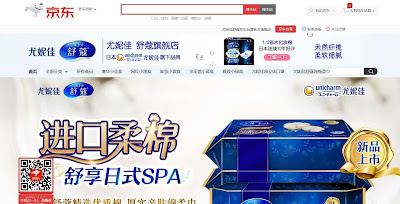China's maternal and infant market is expected to see steady growth over the next decade, with online distribution channels playing a vital role in bolstering consumption, due to growing demand from young parents who pursue high-end lifestyles, particularly in lower tier cities.
The increase in population in China has brought an increase in the demand for mother and babies products, stimulating the development of the related market.
Revenue from the maternal and infant market in China reached 2.9 trillion yuan last year, and the figure is expected to reach 3 trillion yuan in 2020. The whole industry will maintain a 20-to 30-percent annual growth rate in the next 10 years.
A growing online presence for mother and babies sector in China
From community e-commerce, to user reviews left online, to simple discussion of new products on social media, Chinese mothers are using Internet as a source of information more than ever.
During Covi-19 outbreak, the demand for mother and baby products has been high. For example, on JD.com sales of daily necessities, such as baby and mother clothes, artificial milk and diapers, increased 10 times on a yearly basis.
With the rise of New Retail, or the integration of online and offline sales platforms, it is foreseeable that retail competition will grow in intensity.
Chinese consumption of mother and babies products
The
post-1980 and post-1990 generations dominate the online maternal and infant
goods sector, with baby clothes and diapers being the most important categories
of online consumption.
The demand
is not restricted to first- and second-tier cities, but has seen growth demand
from lower-tier cities. Indeed, it is interesting to note that the growth in
consumption from third and fifth tier cities is higher than that of first and
second tier cities, showing enormous potential for the China’s mother and babies
market.
Chinese
families are increasingly demanding higher quality and premium products. Faced
with increasingly demanding consumers and with the demand for high quality
products, brands must distinguish themselves from the complex competitive
environment by:
- improving product quality,
- creating a strong reputation,
- building brand awareness.
Chinese online retailers efforts to satisfy Chinese consumers demand for mom and baby products
Chinese
online retailers are looking to satisfy Chinese consumers demand for mother and
babies products, launching tailor-made commodities and cooperating with various
overseas brands to cater to their diversified and personalized demands.
JD.com and a diaper brand cooperation
JD.com(京东Jīngdōng) is a
Chinese e-commerce company headquartered in Beijing. It is the second B2C
online retailer in China after Alibaba’s Tmall. It is partly owned by Tencent, which has a 20% stake in the
company.
JD is
banking on the consumer-to-manufacturer or C2M sector to expand its presence in
the maternal and baby products market.
By
partnering with a diaper brand, JD, using online research and comment data
analysis, has found that users often search for specific keywords like “diaper
rash” and look for diapers that won’t damage baby’s skin.
Based on
big data and consumer preferences, JD and the diaper brand subsequently
developed a new diaper product for sensitive baby’s skin.
Currently, JD
has become one of the largest retailers for many world-famous brands such as
Wyeth, Kao, Unicharm, Frisco, Nestle, Danone and Pigeon.
Online retailers specialized in imported mother and baby products
MIA.com and its brand Mompick
Mia is an online retailer specializing in items for mothers and baby. Founded in 2011, Mia.com is committed to helping middle and high-income families access the best products for mothers and babies, such as diapers, infant formula, toys, and baby clothes from abroad.
Mia is ramping up efforts to build up the supply chain of maternal and baby commodities and establish its self-owned brand Mompick.
Statistics from Mia showed:
- its users from first-and second-tier cities are more willing to spend on comfortable underwear, snacks and intelligent home appliances,
- its users living in third-to fifth-tier cities tend to buy women's apparel, latex pillows, juice extractors and other homegrown products.
BABYE TREE
Babytree is China’s largest online parenting site. In 2018 Babytree reached a strategic cooperation agreement with Alibaba on e-commerce to further improve its consumer services for Chinese families.
Babytree has announced strategic cooperation with Japanese TV station Tokyo MX to form a joint venture in Japan, sourcing quality Japanese consumer goods for mothers and their families in China.
Babytree will jointly develop professional and interesting intellectual property such as content with Tokyo MX, combining the concepts, use and functions of high-quality products with the current visual pan-entertainment content that is most popular with young Chinese families.
Here is a guide on how to promote and sell mother and babies products in the Chinese market:
- https://www.marketingtochina.com/business-guide-for-mother-baby-products-in-china/





Center Post
RépondreSupprimerCenter Post
Center Post
Center Post
Center Post